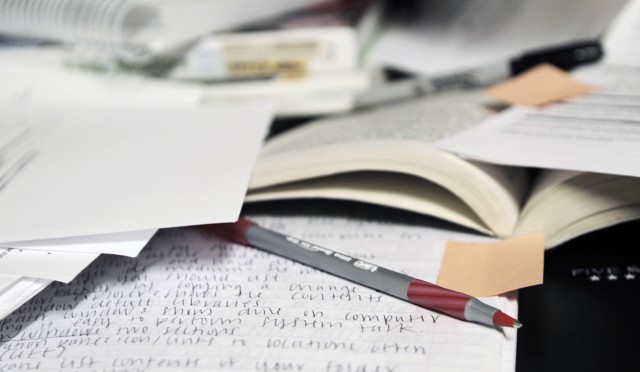
By Ryan Hannegan
Reporter
A beast that rears its ugly head at the sight of a deadline. The little voice in our heads that says there’s plenty of time later. The urge to choose an all nighter to write a paper instead of finish it in over a full semester.
It’s called procrastination, and for many, it comes with more than just sleepless nights clinching a coffee cup at the library.
At one time or another, most people have been guilty of putting off some task they know they need to take care of but cannot get motivated to begin.
While they might all be familiar with procrastination, many of them do not really know why they do it.
College students have varying opinions on whether waiting until the last minute affects quality of work. Some think it hurts studying and remembering information for a test.
“By doing something over time, you encounter information multiple times which helps you remember it better,” said Houston junior Andrew Kliphon. “If you procrastinate you only look at something once and don’t remember it as well.”
Others see it as inspiration to get things done and completed before it’s too late.
“It motivates and forces me to learn the subject,” said Richardson sophomore Julio Pineda. “I may not comprehend everything, but I gain a general knowledge about the subject.”
Some students view procrastination as a helpful tool when studying.
“It allows me to keep my mind clear of stress in the weeks prior, which allows me to have a healthy sleep schedule and have an overall healthy body come crunch time,” said Bozeman, Mont., junior Matt Naden.
Scientists and researchers have created numerous studies to attempt to understand exactly why procrastination takes place, many studies with intriguing and sometimes surprising results.
Researchers at Ohio State University gave a survey in 2002 to 116 students where they answered questions that, when calculated by researchers, rated them as high, moderate or low procrastinators.
They found that the worst procrastinators had significantly lower grades in a college course with several deadlines than did those ranked as low or moderate-level procrastinators.
The worst procrastinators were also more likely than others to use rationalizations such as “I work best under pressure” to justify their behavior in school.
However, the lower grades received by the worst procrastinators show these rationalizations are nothing more than wishful thinking.
“The results show that procrastinators don’t work better under pressure, but it may be the only way they work,” said Ohio State University professor Bruce Tuckman who led the study. “They don’t have any idea how well they might do if they didn’t procrastinate.”
Tuckman also said how results showed low procrastinators were much less likely than moderate or high procrastinators to use rationalizations.
Tuckman said procrastinators are somewhat selective in the way they rationalize, tending to choose rationalizations that make it seem that waiting to do an assignment is a good thing for them.
The study found although procrastinators did much worse in classes with deadlines, overall, the GPA did not differ that much between low, moderate and high level procrastinators.
A 2007 study conducted at the Massachusetts Institute of Technology confirmed classes with long deadlines cause heavy procrastinators to suffer.
The study suggests in classes in which a paper is due at the end of the semester, the students earned the worst overall grades despite having a longer amount of time to work.
Most admitted to putting off the bulk of the work until the end of the semester.
The classes with the highest grades were those that required papers turned in at set intervals throughout the semester, perhaps because it helped to spread out the workload and forced students to do at least some amount of work each week.
“The key to overcoming procrastination may be to recognize the inaccuracies of the common ‘wishful thinking’ rationalizations,” Tuckman said. “There’s no way to know if you do your best work under pressure if you never try another way. If students tried to do their assignments in a more timely way, they may be surprised at the results.”



